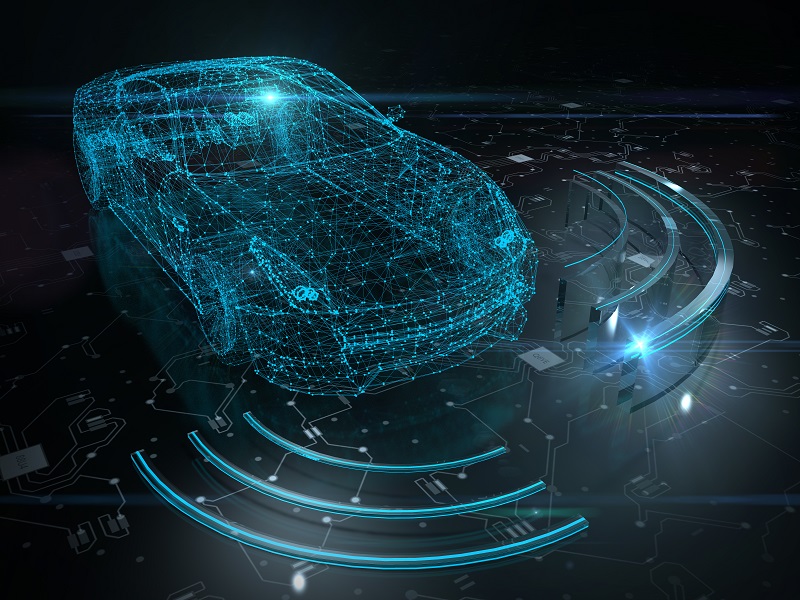Paul Orlando, the Founder of Startups Unplugged, an Incubator Director, and an Adjunct Professor at the University of Southern California based in the United States participate in Risk Roundup to discuss “Autonomous Vehicles Risks.”
Autonomous Vehicles Risks
Fueled by big data, artificial intelligence-driven autonomy, is rapidly becoming a powerful tool to transform industries fundamentally. Autonomy, the power of self-governance, which is the ability to act independently of direct human control and in unplanned conditions, brings the transformative potential for industries.
As it gets applied to the automotive industry, artificial intelligence driven autonomy is driving innovations and revolutionizing the industry. The emerging potential is enabling entirely new intelligence and automation capabilities to transform the industry fundamentally. While the possibility of autonomous vehicles brings with it many benefits, we will likely see many risks, intended and unintended consequences in the coming years.
Intended and Unintended Consequences
When machines, systems, or software can learn to perform tasks without human direction or supervision, they can manifest themselves as autonomous machines or systems. Irrespective of robotic systems, autonomous cars, or bots, when they are beginning to be released into the world unsupervised and begin to accomplish things that were not defined by the developers and are not foreseen by their human designers or owners, it becomes essential that we understand the complex challenges coming our way. It is necessary to understand the intended and unintended consequences:
- What risks are emerging for which the designers of autonomous vehicles are prepared for and are not prepared for?
- What challenges will the industry face in expanding the application of autonomous systems?
- How do we know what biases and errors are becoming a part of the autonomous machine decision making process?
- What are the risks? How are these risks being managed, and how can they be?
- How can we ensure autonomous system/machine/software safety and security?
- Is there a way to tie human responsibility to machine responsibility?
- How should we govern the risks of intended and unintended consequences?
- How should we control the unknown’s unknowns?
- What questions these autonomous systems bring for the future of humanity that we need to be mindful about?
Intelligent machines are teaching themselves new strategies and a new way of doing things. Not only that, on their own, but they have also begun to look for new data to analyze independently further. As a result, humans are beginning to lose control. The reality is that autonomous systems, machines, and software are no longer open to questions or scrutiny by humans and are not understandable.
The advent of these systems/machines/software that can function increasingly independently of humans and can execute tasks that would require human-level intelligence warrants special attention. As these systems/machines/software give rise to a range of essential and hard moral questions, we must evaluate the growing concerns about managing the rapidly emerging security risks.
Values and Ethics
With the growing concerns about the autonomy of these systems/machines/software and their associated risks, it is crucial to discuss how to embed human values and ethics in them. It is vital that we first collectively agree as to what human values we can live with ourselves and in our intelligent machines. That would help us understand how to implement them effectively in them.
While we still try to grapple with human autonomy, we must begin to evaluate the risk and rewards of machine autonomy. While human autonomy gives us to a large extent capacity to legislate for ourselves, to formulate, think and choose norms, rules, and laws for ourselves to follow as long as they do not hurt others, it is critical to evaluate whether we want to encompass similar rights to be free to machines/systems/software and to let them set one’s standards and choose one’s own goals and purposes in life.
To protect the future of humanity, we, humans ought to be able to determine which values and ethics are embedded in autonomous systems/machines/software. No matter how intelligent these systems, software, or machines are or how powerful they are, this cannot be left to machines. It is time to define how to embed the value and ethics in autonomous systems/machines/software.
For more, please watch the Risk Roundup Webcast or hear the Risk Roundup Podcast
About the Guest
Paul Orlando has founded and built startup accelerators in Hong Kong, Rome, and Los Angeles. He also teaches business growth at the University of Southern California and advises corporations on product innovation and rapid experimentation. Paul has degrees from Cornell and Columbia and was a winner at the TechCrunch Disrupt Hackathon. He studies and writes about unintended consequences in tech and business.
About the Host of Risk Roundup
Jayshree Pandya (née Bhatt), Ph.D., is a leading expert at the intersection of science, technology, and security and is the Founder and Chief Executive Officer of Risk Group LLC. She has been involved in a wide range of research, spanning security of and from science and technology domains. Her work is currently focused on understanding how converging technologies and their interconnectivity across cyberspace, aquaspace, geospace, and space (CAGS), as well as individuals and entities across nations: their governments, industries, organizations, and academia (NGIOA), create survival, security, and sustainability risks. This research is pursued to provide strategic security solutions for the future of humanity. From the National Science Foundation to organizations from across the United States, Europe, and Asia, Dr. Pandya is an invited speaker on emerging technologies, technology transformation, digital disruption, and strategic security risks. Her work has contributed to more than 100 publications in the areas of science and commerce. She is the author of the books, Geopolitics of Cybersecurity and The Global Age.
About Risk Roundup
Through the Risk Roundup initiative, Risk Group is on a mission to talk with a billion people: innovators, scientists, entrepreneurs, futurists, technologists, policymakers, to decision-makers. The reason behind this effort through the Risk Roundup initiative is to research, review, rate, and report strategic security risks facing humanity. This collective intelligence effort is essential to understand where we need to focus on our collective security. And what destructive forces we need to be mindful about.
Risk Roundup is released in both audio (Podcast) and video (Webcast) format. It is available for subscription at (Risk Group Website, iTunes, Google Play, Stitcher Radio, Android, and Risk Group Professional Social Media).
About Risk Group
Risk Group is a Strategic Security Risk Research Platform and Community. Risk Group’s Strategic Security Community and Ecosystem is the first and only cross-disciplinary and collective community that is made of top scientists, security professionals, thought leaders, entrepreneurs, philanthropists, policymakers, and academic institutions from across nations collaborating to research, review, rate, and report strategic security risks to protect the future of humanity.
Copyright Risk Group LLC. All Rights Reserved





 Is There A Need For A New Approach To Machine Identity?
Is There A Need For A New Approach To Machine Identity?